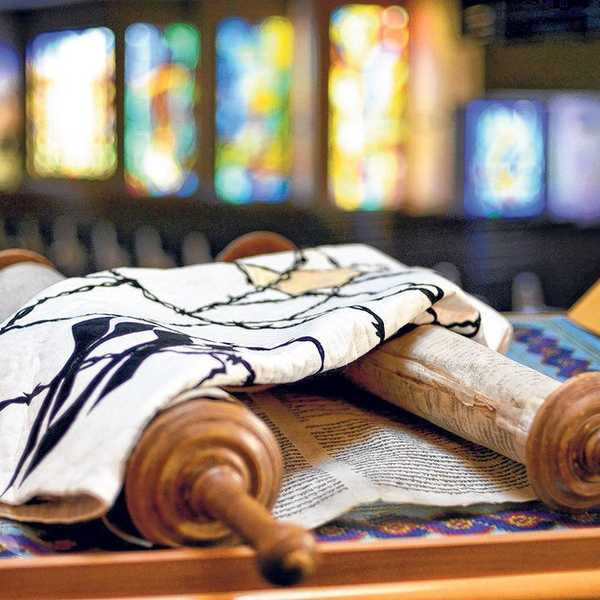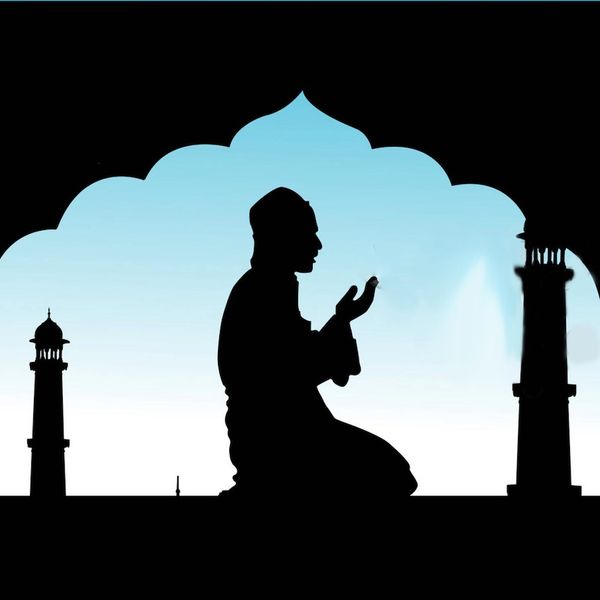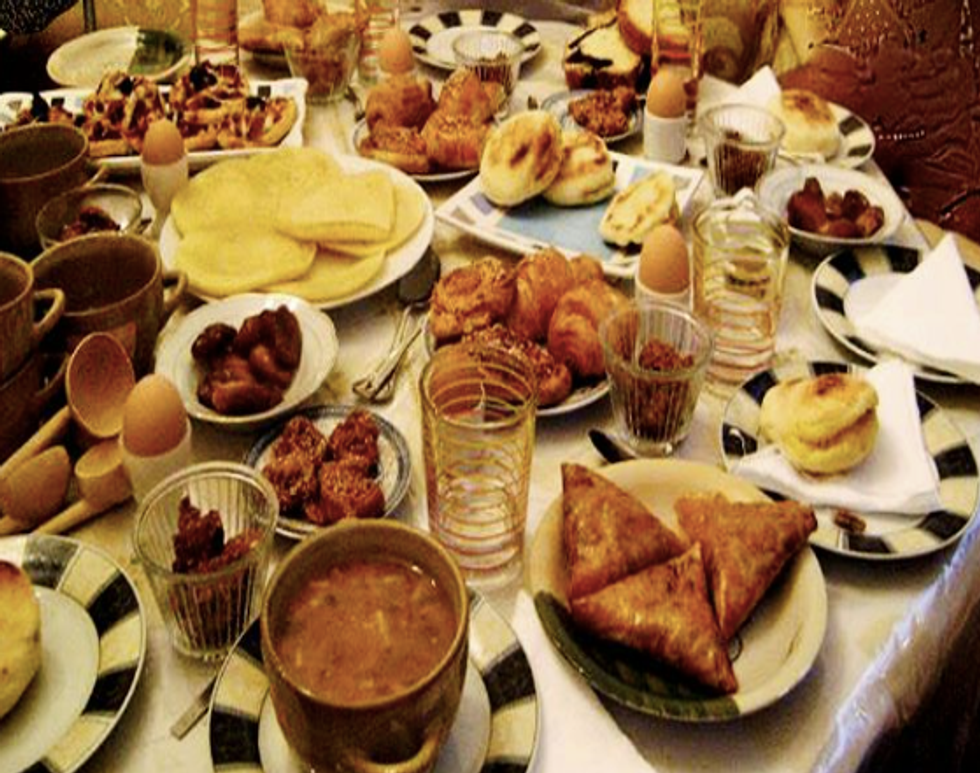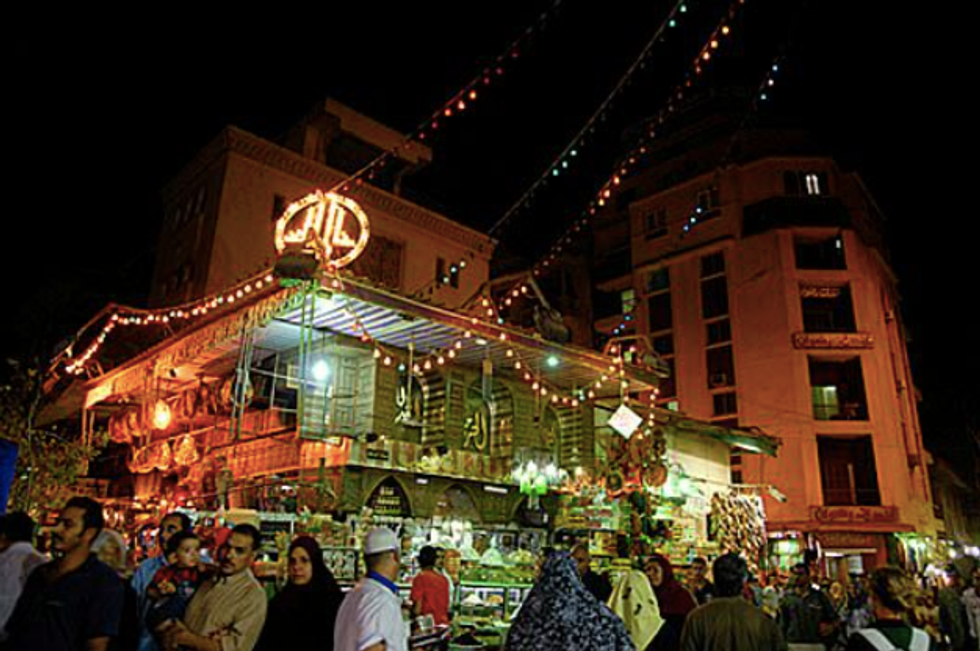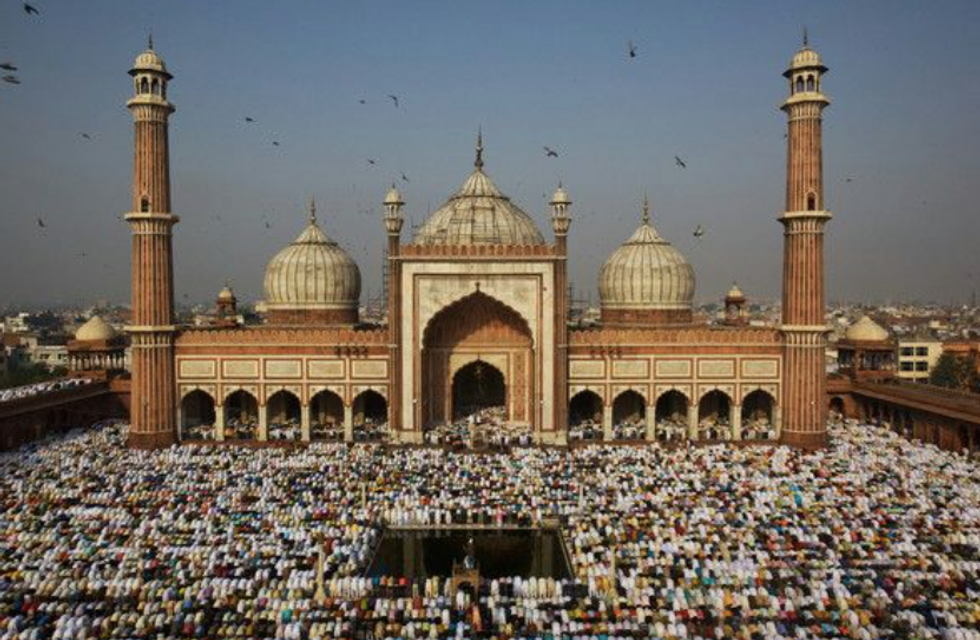The Islamic Holy month of Ramadan is characterized by the abstention of food, drink, smoking, use of swear words, and engaging in sexual relations. Muslims celebrate Ramadan as a way to become closer to Allah, and to gain a better understanding of how it feels to be without. During Ramadan, Muslims increase their charitable works and better develop feelings of generosity and goodwill towards others. Besides its basis in religion, Ramadan is also seen as a break for our stomach: imagine you have a machine that works for years and years without stopping. After a while it begins to slow down, but if you let it rest once in a while it maintains itself. This idea is applied to our intestines, as during fasting the body begins to get rid of toxins. Finally, fasting teaches us self control.
The end of Ramadan is signaled by the celebration of Eid AlFitr (عيد الفطر), a time of thankfulness and reflection (and lots of food!). Even though the primary focus of Ramadan is placed on spirituality,family and traditional food (especially in Moroccan culture) are also of great importance.
Food:
Iftar (إفطار)
Iftar, or more commonly known as F'tour(فتور) in Morocco, is used to refer to the meal used to break the fast during Ramadan. While Iftar occurs around 7:45 PM, these Arabic words are the same word used to refer to breakfast. This meal is dominated by sweet foods dates, chebakia,sellou,milk, and fresh juices. Harira, atomatobased soup with lentils and a type of meat, is also commonplace at the dinner table. This savory soup is counterbalanced with hardboiled eggs and Moroccan breads such as msemen.
Suhur (سحور)
Suhur refers to the meal generally eaten around 4 AM, before dawn. The term literally means "of the dawn." In order to prepare for the day of fasting, Muslims eat a variety of foods that are high in carbs and fiber. This meal is dominated by breads, jellies, fruits, rice, and water lots of water. The purpose of this meal is not necessarily for pleasure, but rather for adequate preparation or "fueling" for the day.
Day and Night Life:
Some people have the life goal of sleeping all day: during Ramadan, Muslims do
just that. That is, until the nafar (town crier) walks down the street and blows his horn to
signal that 1) it's time for fasting to commence or 2) it's time to eat. This horn is
accompanied by the adhanor call to prayer, a citywide siren letting everyone know that
they may now eat and drink, or that fasting has begun, depending on the time the siren
begins. The siren is located at the nearby masjid (mosque) and traditionally begins with
the saying "Allahu Akbar."
Before F'tour the streets are empty. Afterwards, you can barely walk on the streets. Nightlife comes alive. In some Moroccan cities such as Marrakech, this is normal routine. Temperatures in Marrakech are too hot during the daytime for Moroccans to venture out, and so they wait until nighttime to begin their day. For many, including myself, the nightlife during Ramadan is one of the most interesting aspects of the holiday.
The "Night of Decree"
Known as Laylat alQadr (ليلة القدر), this day of Ramadan is considered the most important of the month. Laylat alQadr falls on an odd night within the last ten days of the Holy Month. It is withheld in Islamic faith that it was on this day that Prophet Muhammad (PBUH) received the message (the Qu'ran). Because of the sacredness of this day, it is believed to be better than 1,000 months of worship Allah's blessings are present, and many sins are forgiven.
"Eid Mubarak Sa'eed!"
As previously mentioned, Eid AlFitr is celebrated as the Holy Month comes to a close. The celebration can last anywhere from a day to three days, entirely depending on the country. Families come together in a time of brotherhood, having just completed an arduous month of fasting. Together, they devour a massive feast of couscous, special cookies, and tea what better way to celebrate the end of a fast than to eat until you're sick?
Besides a luxurious feast, Muslims receive new traditional clothing that is worn during the morning when praying. Eid prayers are not traditionally performed in the mosque, but rather in a large square where hundreds gather on this day. Eid is seen as a day of gathering, which extends from gathering for prayers to exchanging visits with relatives and friends.
At the end of Eid, nights become less of a spectacle, sleep schedules become recognizable to the average human, and the sweet foods that seem to be made of pure sugar go away... but not for long.

